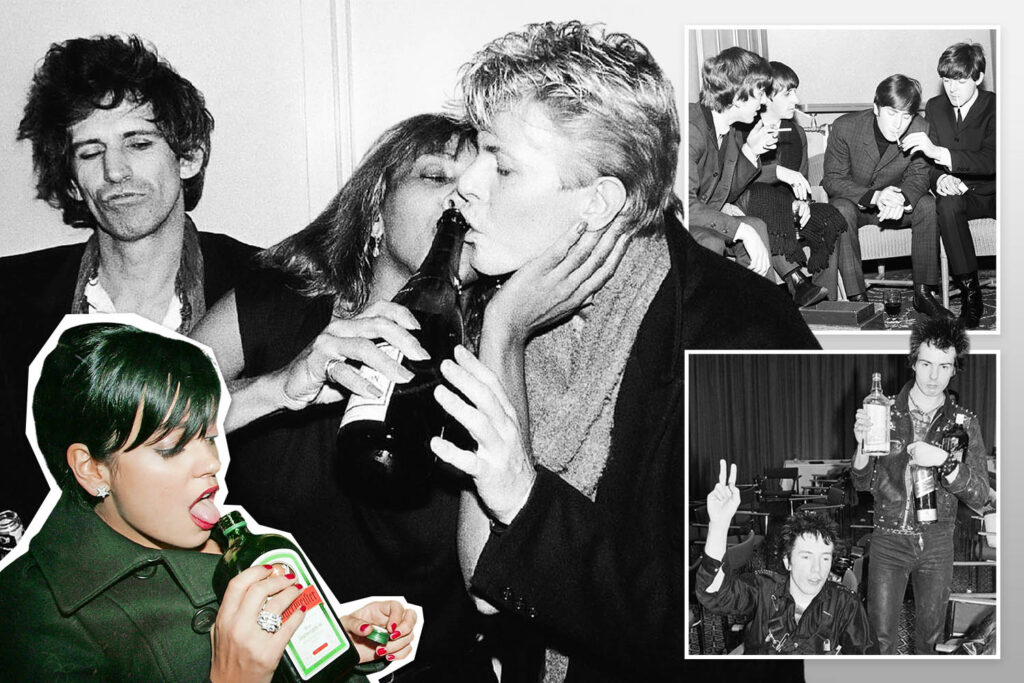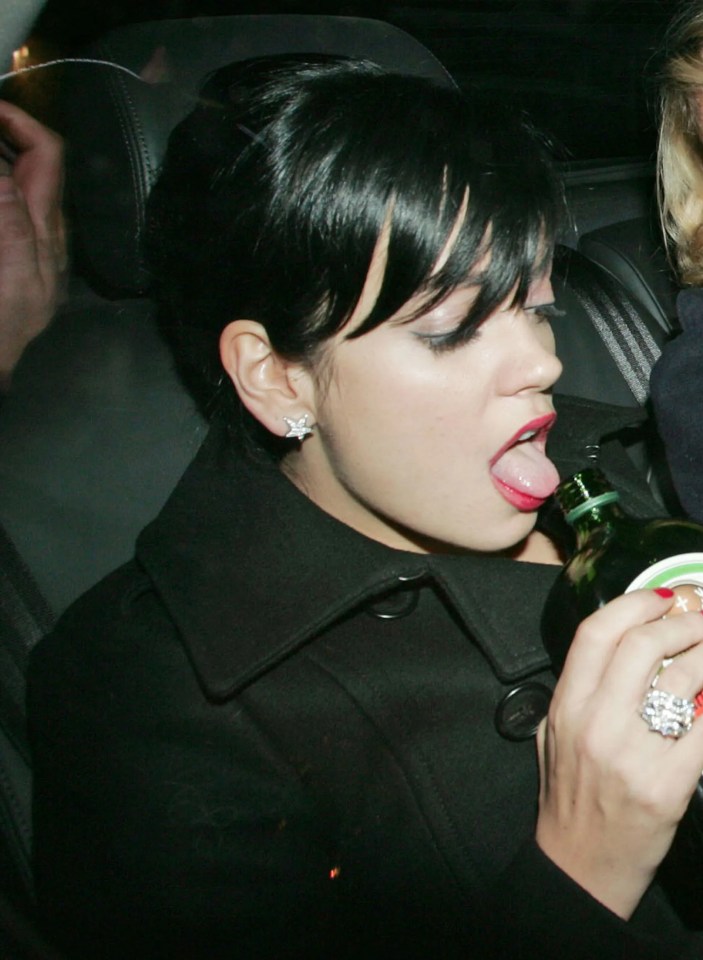Listen to the article
IT was the world’s coolest company– where sex, drugs and rock ‘n’ roll were most likely than information, matches and blue-sky thinking.
EMI was the home of legends: The Beatles, Stones, Tina Turner, Queen and Spice Women amongst a glittering lineup of acts.
It was likewise home to a penthouse “shag pad”, a “sex lift” and a supposed ₤ 200,000-a-year fund scheduled for “drugs and hookers”.
And the luxury didn’t end there– one officer sprinkled out ₤ 20,000 on candle lights for an artist’s green space.
Tales of severe extravagance emerge on brand-new six-part podcast Music, Cash & & Chaos, from Unique in association with BBC Studios.
Host Chris Atkins states: “Choose your preferred bands and the majority of them were EMI.
” They had the golden touch and the magic ears.
” They provided us the very best music that specified our culture for generations.
” Britain punched above its weight for years due to the fact that of EMI and it indicated our music was an over-represented force in America and the world.”
And with that status came a workplace culture of excess.
Numerous employees would flock to Glastonbury every year on the business cent.
The only business with more guests was the BBC, which relays the occasion.
EMI likewise had the second-largest business personal taxi account, utilized to shuttle personnel to gigs and after-parties and after that home once again in the little hours.
Chris states: “That business luxury, which is alien now, was commemorated and the calling card of a market that flaunted just how much cash it might p ** s up a wall.”
Then there’s the sordid story of a cleansing cabinet at Virgin Records where a lift utilized to be, before EMI purchased the label for ₤ 510million in 1992.
Ernesto Schmitt, who operated at EMI, states it utilized to be a “sex lift”, including: “I’m not making this up, it was genuine.
” This antique was a running joke at EMI for several years.
‘ SEX TOYS & & VODKA’
” The elevator was directly out of a knocking store.
” It was padded with studs and had secret compartments with sex toys, vodka bottles and things.
” And after that you would go to the penthouse and it was set out like a shag pad, I kid you not.”
This kind of excess produced beast egos.
However even EMI eyebrows were raised at one need by Can’t Touch This hitmaker MC Hammer.
In 1990, his album Please Hammer, Do not Injured ‘Em had actually topped the United States charts, offering 10million copies, and he had actually offered out Wembley Arena.
Record plugger Phil Barton remembers the rap artist summoning everybody into a dark space to commemorate him while he rested on a throne with a walking cane and black-lensed glasses.
Phil states: “We separately increased to him and stated, ‘Thanks’, and after that strolled off and he would nod in a sort of royal method.
” We were laughing at the back and we got shot filthy appearances, like ‘Do not f *** k this up!’.”
However the world’s coolest record business’s death followed it had actually been taken control of– by “the least cool guy on the planet”.
Personal equity financier Guy Hands purchased EMI with his business Terra Firma Capital Partners in 2007, a year before the monetary crash.
It was a big disaster when EMI broke down and was purchased by international business
Chris Atkins
The business was currently losing on countless sales due to unlawful music sharing on infamous site Napster.
And it just had a brand-new band success rate of 10 percent.
With statistics like that, Guy– who paid ₤ 4.2 billion for EMI, obtaining from United States firm Citigroup– chose to take a data-led, risk-averse technique.
This contrasted to the previous method, which might be categorised as “tossing mud at the wall and seeing what sticks”.
However it ultimately saw him lose 60 percent of his individual net worth and EMI being taken control of by Citigroup in 2011, when the financial obligations might not be paid back.
The business was then separated and sold.
” It was a big disaster when EMI broke down and was purchased by international business,” states Chris Atkins.
” Inadequate was made from that.
” Their successes weren’t commemorated enough nor was the decrease grieved enough. I’m unfortunate it’s gone.”
When Guy came on board in 2007, Chris states his “army of whizz kids” were concentrated on information instead of the “enormously dangerous gamble” of “tossing mud at a wall”.
EMI’s old technique might have had some “dreadful returns” however it did discover once-in-a-generation skill.
That swimming pool likewise consisted of Coldplay, Kate Bush, Mariah Carey, David Bowie and various others.
And, naturally, there were those 4 working-class lads from Liverpool, who had actually been informed by every other label that “guitar music was dead” and “nobody would purchase it anymore”.
The Beatles ended up being EMI’s supreme golden goose, producing culture-defining music and controlled the world.
Mind you, even the old EMI might be danger averse.
In 1977 they rapidly dropped foul-mouthed punks The Sex Handguns due to the fact that of public outrage.
However they were on more secure area when they bought Oxford-band On A Friday in 1991.
Chris discusses: “EMI got to the front of the pack, signed them for a 6- album offer, however stated, ‘Your name is crap, how about you call yourselves Radiohead?’.”
A great deal of it was an auto accident,” Chris states. “All of this bonkers things was seen by rock stars as offering out
Chris Atkins
Later On, under Guy, EMI attempted simple cashgrab concepts, such as a Coldplay tooth brush that played their hit Yellow, a plan to charge individuals to enjoy sessions at Abbey Roadway Studios and for Radiohead to front a marketing project with “dull, dull, middle-class” brand name Next.
None was accepted by the artists.
” A great deal of it was an auto accident,” Chris states. “All of this bonkers things was seen by rock stars as offering out.”
Mick Jagger was pitched a Rolling Stones-themed parlor game, a spin-off for computer game Guitar Hero and an outrageous truth television program.
Chris states: “They had the concept for Stones Idol, like Pop Idol, to discover a brand-new member for the band, with Mick and Keith Richards as Simon Cowell and Louis Walsh.
” The ambitious pop stars in wigs would remain in trashed spaces, with tellies tossed out of the windows, and the Stones would decline or tutor them.
” I’m gutted it never ever made it to air.
” I was informed Mick was so insulted, he went to the bathrooms and never ever returned.
” Weeks later on they left EMI.”
There were money-saving agreement conflicts, too.
Joss Stone’s advance was slashed after EMI thought they “would not offer many of her future records”.
‘ UTTER SACRILEGE’
Intensely, she marched into Guy’s workplace with her poodle, Dusty Springfield, for a face-off– just for the pet dog to “provide what detainees call a ‘filthy demonstration’.”
Likewise, when EMI declined to cross out a “little financial obligation” owed by indie band The Vigor, their supervisor supposedly tossed a CD at Guy’s head, “trashed his workplace” and “tossed paper all over”.
However often Guy’s technique worked.
EMI’s Beatles back brochure reissue in 2009 offered 20million in a couple of months.
The label’s marketing research had actually found Fab 4 fans did not understand where to purchase their music anymore which the majority of them viewed the QVC shopping channel, so Chris states “information wonks” stated to offer it on there.
He includes this was “utter sacrilege to the conventional folk at EMI” and insulting to the company’s “crown gems”.
Some artists sneered at using information however Snoop Dogg “enjoyed the spreadsheets”, as did David Guetta.
Both ended up being “extremely effective as an outcome”.
Unfortunately, those wins were inadequate and Guy ultimately managed the business’s death.
Musicians such as Lily Allen fumed.
She even altered lyrics to her 2008 tune F **** You to “F **** you, EMI” at one performance.
” When you have artists like Robbie Williams on one side and lenders on the other, you’re constantly going to go, ‘Poor Robbie’,” Chris states.
Guy was looking into the void.
He had a psychological breakdown from the tension and established a “unusual consuming condition” where he ended up being addicted to roast potatoes.
Citigroup took ownership of EMI in 2011 due to the debts, and later on sufficed up and offered it off to various business.
Chris does not completely blame Guy and states the financier “confesses all of his errors” and lost billions.
He even presumes he led his time.
” When Guy took control of, the kitchen was empty, they were screwed economically,” he states.
” The least cool guy on the planet needed to conserve the world’s coolest business and s ** t struck the fan.
‘ REVERS OF ROCK-AND-ROLL’
” It was a clash in between cash and art, which are actually, actually odd bedfellows.
” Penny-pinching, cost-cutting and playing it safe are the reverse of rock-and-roll.
” Guy wasn’t a lender who destroyed the music organization for everybody.
” However the circumstance ended up being nitroglycerin and increased in a huge surge.”
- Music, Cash & & Chaos, from Unique in association with BBC Studios, readily available any place you get your podcasts.
Read the full article here
Fact Checker
Verify the accuracy of this article using AI-powered analysis and real-time sources.









